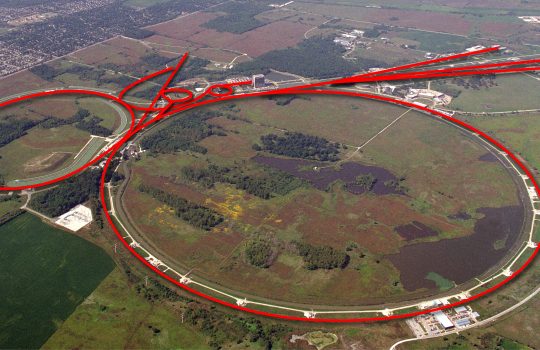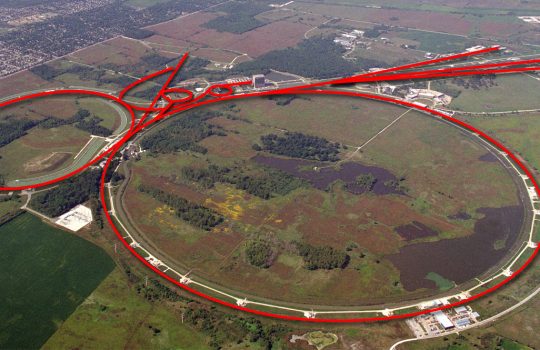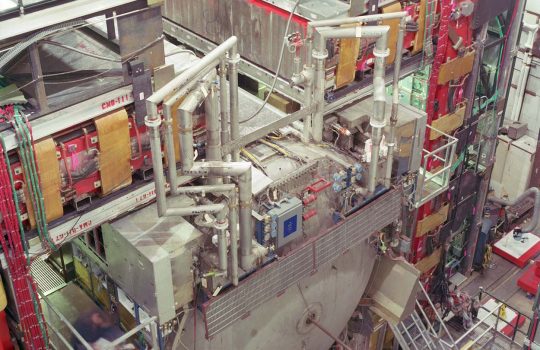U.S. CMS Detector project wins Department of Energy award
The U.S. Department of Energy has named the U.S. Compact Muon Solenoid detector project as a recipient of the DOE Secretary’s Award for Achievement. DOE presents the awards to management teams that demonstrate significant results in completing projects within cost and schedule.
Fermilab to Receive $34.9 Million in Recovery Act Funding
Funds are part of $1.2 billion from Recovery Act to be disbursed by Department of Energy’s Office of Science.
Particle physicist for a day
This isn’t your average field trip. This month, more than 6,000 high school students participating in Hands-on Particle Physics Masterclasses will have the chance to form national or international scientific collaborations, just like real particle physicists do.
Particle oddball surprises CDF physicists at Fermilab
Scientists of the CDF experiment at the Department of Energy’s Fermi National Accelerator Laboratory announced yesterday (March 17) that they have found evidence of an unexpected particle whose curious characteristics may reveal new ways that quarks can combine to form matter.
Fermilab experiments constrain Higgs mass
The territory where the Higgs boson may be found continues to shrink. The latest analysis of data from the CDF and DZero collider experiments at the U.S. Department of Energy’s Fermilab now excludes a significant fraction of the allowed Higgs mass range established by earlier measurements.
Precision measurement of W boson mass portends stricter limits for Higgs particle
Scientists of the DZero collaboration at the Department of Energy’s Fermi National Accelerator Laboratory have achieved the world’s most precise measurement of the mass of the W boson by a single experiment.
Fermilab collider experiments discover rare single top quark
Scientists of the CDF and DZero collaborations at the Department of Energy’s Fermi National Accelerator Laboratory have observed particle collisions that produce single top quarks.
Collaboration between Fermilab, Indian institutions sets stage for future accelerators
The Department of Energy’s Fermi National Accelerator Laboratory in Batavia, Ill., today announced the signing of a new Memorandum of Understanding with four Indian institutions.
Scientists inaugurate world’s largest cosmic-ray observatory
Scientists of the Pierre Auger Observatory, a project to study the highest-energy cosmic rays, will celebrate the inauguration of their 3000-square-kilometer detector array at the southern site of the observatory in Malargüe, Argentina, this Friday, November 14, 2008.
Local community leaders, Nobel laureate meet with 600 physicists and students at Fermilab Nov. 6-8
How can the local community effectively give feedback to scientists? How can scientists understand the needs of the US Congress and their local elected officials?



